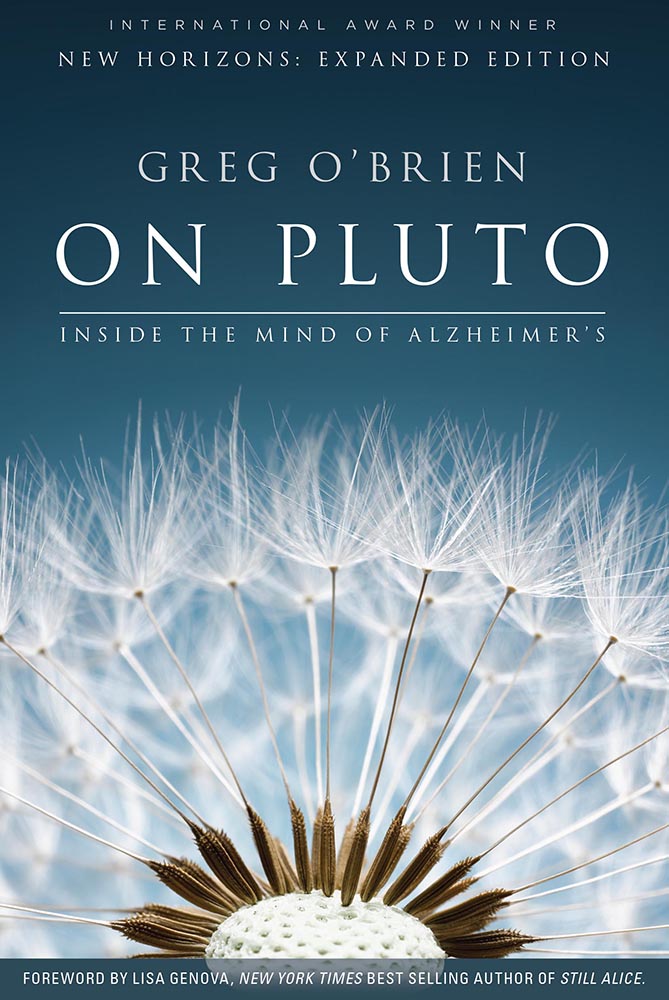Ready, Set, Action
By David Shenk
You can’t go back now. You can’t un-know Greg O’Brien’s fearlessness, or his family’s heartache. Alzheimer’s has too young a face now, and a warm, lovely cottage on Cape Cod. It has a gentle wife and three loving kids who aren’t nearly ready to say goodbye to their dad. It has a story that won’t ever leave you, or me … unless we get Alzheimer’s.
This is just a simple truth.
So what now? What are you going to do with this knowledge? For this Epilogue, my friend Greg asked me to address what specific action the reader can or should take. You’ve already opened up your heart and let Greg in—that’s the most important thing. But what else can you do?
We have to stop Alzheimer’s. We have to. That’s why Greg wrote this book, and allowed filmmakers into his home, and why he travels around the country giving speeches, and occasionally embarrasses himself on the radio, and gets lost, and sometimes feels like an idiot. He does it because he wants us to move into action and stop this goddamned disease. Now!
We can do it. A reasonable argument could be made that Alzheimer’s still exists today only because we haven’t yet stepped up to fight it hard enough. Smart researchers have been at it for decades, but we’ve only given them a fraction of the money they need to do the job.
This is a disease that has been afflicting the elderly throughout history. Ralph Waldo Emerson had it. Jonathan Swift had it. The Greek legislator Solon wrote about it in 500 B.C. But only in recent decades, due to dramatic gains in human longevity, has Alzheimer’s emerged as a true social health catastrophe. People are living longer than ever before, thanks to modern nutrition and medicine, and are thus paradoxically exposed to increasing risks of Alzheimer’s.
Currently afflicting 5.5 million Americans at an annual cost of more than $200 billion, these numbers will virtually triple by 2050. The global picture is quite similar: already, 34 million people worldwide have Alzheimer’s or a related dementia. If left unchecked, Alzheimer’s could bankrupt health systems everywhere. You’ve heard it before. This is no exaggeration.
More to the point, unless you plan on dying young, there is a strong chance you will get it. Or your spouse. Or your best friend.
There’s no shame in selfishness. We should all feel compelled to stop this disease for the most selfish of reasons.
Researchers have made great recent strides, but we are not moving fast enough. Federal research funding stands at roughly $550 million—a paltry amount considering the scope of the problem and what the U.S. government spends on other challenges of this magnitude. This is augmented by smaller, but significant private efforts. After years of getting to know the Alzheimer’s research community, I have recently come to support the Cure Alzheimer’s Fund (CAF), an exemplary consortium of top Alzheimer’s scientists led by renowned geneticist Rudolph Tanzi, PhD of Massachusetts General Hospital and Harvard University, and connected to researchers at the Icahn School of Medicine at Mount Sinai in New York City, Washington University, University of Chicago, University of Pennsylvania, University of Southern California, Stony Brook, Stanford University, The Rockefeller University, The Johns Hopkins University School of Medicine, and many other great institutions. CAF’s current annual research budget, all from private citizens like you and me, is approximately $10 million. They’ve already scored several important breakthroughs in genetics, diagnosis, and drug discovery. Greg and I know them well (and I assist them in educating the public). We trust them.
Here’s what we should do soon, you and I. Of course, I’d like to introduce you to Greg in person. He’s even more real and inspiring, and funnier. I’d also love for you to meet Dr. Tanzi. Another extraordinary person. The four of us could have a nice glass of wine and revel in life’s richness and sadness.
But in the meantime, please consider playing a direct role in the fight to halt this urgent epidemic. Call your congressional representatives and let them know Alzheimer’s is a priority for you and your family; that they are letting Americans down if they aren’t fighting hard for more research. Also, donate a little something, or half your net worth, to the Cure Alzheimer’s Fund (curealz.org)—or to any Alzheimer’s research foundation you admire.
If you like to help the caregiving world, consider a donation to, or volunteering some time at, the Alzheimer’s Association (alz.org). They do incredible work in every state in the U.S.
Don’t do this for Greg. Do it for yourself!
(David Shenk is author of The Forgetting, creator of the Living with Alzheimer’s film project, and a senior advisor to the Cure Alzheimer’s Fund.)
